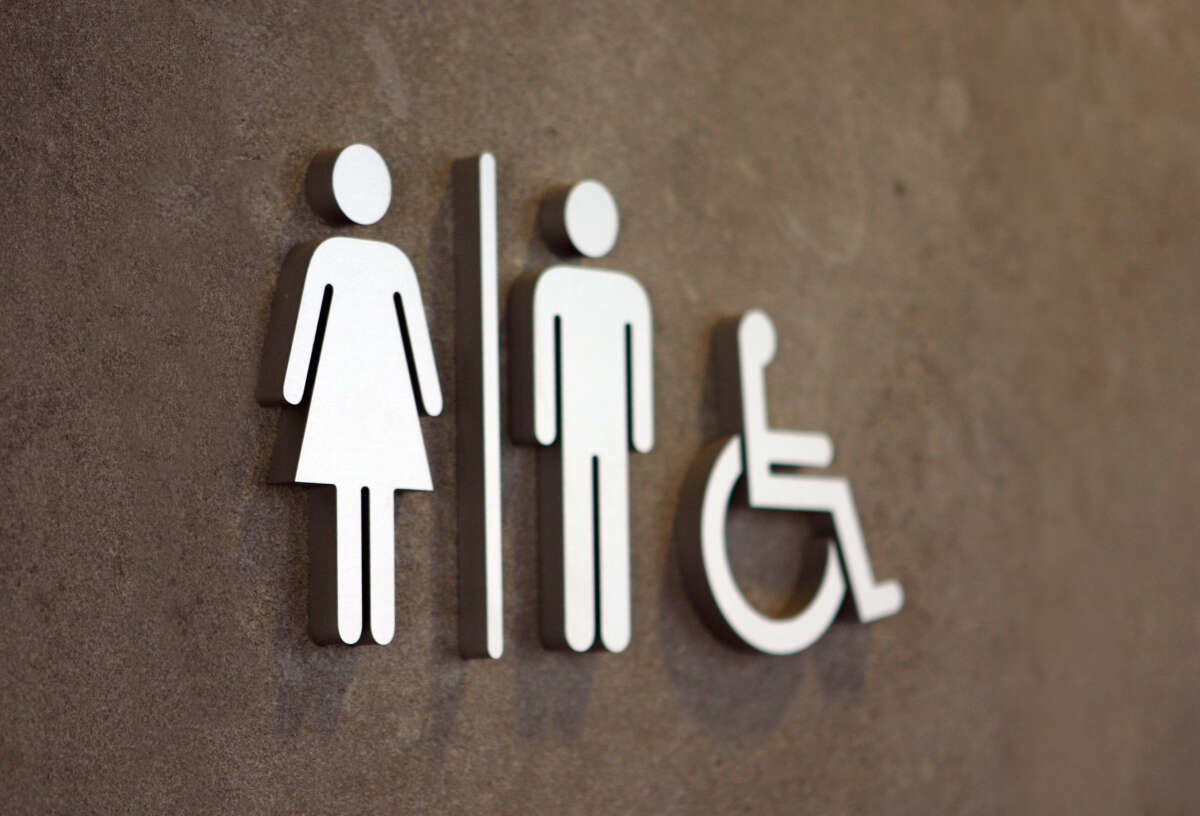Support justice-driven, accurate and transparent news — make a quick donation to Truthout today!
The Arkansas state Senate passed a bill on Tuesday that would forbid transgender people in the state from using restrooms, locker rooms or other facilities that correspond with their gender.
Senate Bill 270 would forbid trans people from using restrooms that don’t align with the sex they were assigned on their birth certificate. Under the bill, a trans woman who enters a woman’s restroom and remains there when a female child is present could be charged with a misdemeanor, as could a trans man who remains in a men’s restroom when a male child is present.
LGBTQ advocates say that the bill is a transparent attempt to criminalize existing as a trans person in public, as Arkansas already has statutes addressing sexual harassment and assault — including indecent exposure in the presence of children — regardless of a person’s gender.
Though the bill was previously defeated in the state Senate, it was rushed back to the floor this week for reconsideration, where it passed. The bill now heads to the state House of Representatives, where it has a high likelihood of passing. Republican Gov. Sarah Huckabee Sanders, who has expressed transphobic views in the recent past, will likely sign the bill into law if it reaches her desk.
According to state legislative researcher Allison Chapman, this is the first time a state legislature has pushed for a bathroom ban since Republicans in North Carolina sought to pass such a law in 2016.
“I’m horrified at the cruelty of @GOPArkansas,” Chapman said in response to the passage of the bill on Tuesday.
Studies have repeatedly shown that there is no factual basis to right-wing fear mongering about transgender people posing a threat to children in restrooms . A UCLA School of Law study from 2018 noted that there is no link between the rate of assaults in restrooms or locker rooms and trans-inclusive policies.
The study provides evidence that incidents of trans people harassing or assaulting people in restrooms “are rare and unrelated to the laws,” wrote Amira Hasenbush, the study’s lead author.
Additional research reveals that trans people are overwhelmingly victims of violence and assault in public restrooms, not perpetrators, as Republicans claim. According to a Harvard School of Public Health study published in 2019, more than one in three trans teens (37 percent) reported being sexually assaulted when they were forced to use restrooms that didn’t align with their gender.
Another survey, conducted in 2016, found that 6 in 10 trans adults in the U.S. have avoided using a public restroom out of fear that they might be harassed or assaulted.
LGBTQ advocates have condemned the Arkansas proposal as a dehumanizing attempt to criminalize transgender and nonbinary people under the guise of protecting children, noting that its enactment would force them to choose between potentially being assaulted and potentially facing a misdemeanor charge every time they use a public restroom.
During Senate debate on the bill late last month, Sarah Everett, the policy director with the American Civil Liberties Union of Arkansas, described the legislation as “the most extreme bathroom ban in the country.”
“There is no other state that has a criminal ban against transgender people using the restroom, whether or not a minor is present,” Everett said, adding that the bill “sends the message that Arkansas thinks trans people are inherently dangerous.”
Speaking against the authoritarian crackdown
In the midst of a nationwide attack on civil liberties, Truthout urgently needs your help.
Journalism is a critical tool in the fight against Trump and his extremist agenda. The right wing knows this — that’s why they’ve taken over many legacy media publications.
But we won’t let truth be replaced by propaganda. As the Trump administration works to silence dissent, please support nonprofit independent journalism. Truthout is almost entirely funded by individual giving, so a one-time or monthly donation goes a long way. Click below to sustain our work.
